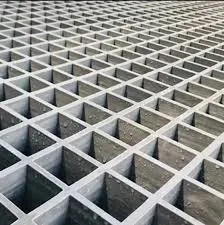
-
 Afrikaans
Afrikaans -
 Albanian
Albanian -
 Amharic
Amharic -
 Arabic
Arabic -
 Armenian
Armenian -
 Azerbaijani
Azerbaijani -
 Basque
Basque -
 Belarusian
Belarusian -
 Bengali
Bengali -
 Bosnian
Bosnian -
 Bulgarian
Bulgarian -
 Catalan
Catalan -
 Cebuano
Cebuano -
 China
China -
 China (Taiwan)
China (Taiwan) -
 Corsican
Corsican -
 Croatian
Croatian -
 Czech
Czech -
 Danish
Danish -
 Dutch
Dutch -
 English
English -
 Esperanto
Esperanto -
 Estonian
Estonian -
 Finnish
Finnish -
 French
French -
 Frisian
Frisian -
 Galician
Galician -
 Georgian
Georgian -
 German
German -
 Greek
Greek -
 Gujarati
Gujarati -
 Haitian Creole
Haitian Creole -
 hausa
hausa -
 hawaiian
hawaiian -
 Hebrew
Hebrew -
 Hindi
Hindi -
 Miao
Miao -
 Hungarian
Hungarian -
 Icelandic
Icelandic -
 igbo
igbo -
 Indonesian
Indonesian -
 irish
irish -
 Italian
Italian -
 Japanese
Japanese -
 Javanese
Javanese -
 Kannada
Kannada -
 kazakh
kazakh -
 Khmer
Khmer -
 Rwandese
Rwandese -
 Korean
Korean -
 Kurdish
Kurdish -
 Kyrgyz
Kyrgyz -
 Lao
Lao -
 Latin
Latin -
 Latvian
Latvian -
 Lithuanian
Lithuanian -
 Luxembourgish
Luxembourgish -
 Macedonian
Macedonian -
 Malgashi
Malgashi -
 Malay
Malay -
 Malayalam
Malayalam -
 Maltese
Maltese -
 Maori
Maori -
 Marathi
Marathi -
 Mongolian
Mongolian -
 Myanmar
Myanmar -
 Nepali
Nepali -
 Norwegian
Norwegian -
 Norwegian
Norwegian -
 Occitan
Occitan -
 Pashto
Pashto -
 Persian
Persian -
 Polish
Polish -
 Portuguese
Portuguese -
 Punjabi
Punjabi -
 Romanian
Romanian -
 Russian
Russian -
 Samoan
Samoan -
 Scottish Gaelic
Scottish Gaelic -
 Serbian
Serbian -
 Sesotho
Sesotho -
 Shona
Shona -
 Sindhi
Sindhi -
 Sinhala
Sinhala -
 Slovak
Slovak -
 Slovenian
Slovenian -
 Somali
Somali -
 Spanish
Spanish -
 Sundanese
Sundanese -
 Swahili
Swahili -
 Swedish
Swedish -
 Tagalog
Tagalog -
 Tajik
Tajik -
 Tamil
Tamil -
 Tatar
Tatar -
 Telugu
Telugu -
 Thai
Thai -
 Turkish
Turkish -
 Turkmen
Turkmen -
 Ukrainian
Ukrainian -
 Urdu
Urdu -
 Uighur
Uighur -
 Uzbek
Uzbek -
 Vietnamese
Vietnamese -
 Welsh
Welsh -
 Bantu
Bantu -
 Yiddish
Yiddish -
 Yoruba
Yoruba -
 Zulu
Zulu
frp blind flange
Understanding FRP Blind Flanges Composition, Applications, and Benefits
FRP (Fiber Reinforced Polymer) blind flanges are integral components in various industrial applications, particularly in sectors that require durable, lightweight, and corrosion-resistant materials. Unlike metal flanges, FRP blind flanges combine the advantages of high strength-to-weight ratio with exceptional resistance to harsh chemicals, making them an ideal choice for specific environments.
What is a Blind Flange?
A blind flange is a type of flange used to seal the end of a piping system or equipment. Unlike standard flanges, which have openings for connecting pipes, blind flanges are solid and do not allow the passage of fluids. They are primarily used to close off and secure pipes, preventing leakage and contamination.
Materials and Composition
FRP blind flanges are made from a composite material that typically includes a combination of fiberglass and a polymer resin, such as epoxy or vinyl ester. This combination enhances the mechanical properties of the flanges while ensuring they remain lightweight. FRP materials are famed for their excellent resistance to chemicals, heat, and moisture, making them a reliable choice for a range of applications.
Applications
FRP blind flanges find extensive use in numerous industries, including
1. Chemical Processing Due to their exceptional resistance to corrosive materials, FRP blind flanges are commonly used in chemical plants to seal off reactor vessels and pipelines.
frp blind flange

2. Oil and Gas This industry often deals with harsh environments, and the corrosion resistance of FRP makes these flanges suitable for various applications, including offshore platforms and refineries.
3. Wastewater Treatment The durability and non-corrosive properties of FRP flanges are ideal for wastewater treatment facilities, where they help manage the flow and ensure system integrity.
4. Power Generation In power plants, especially those using alternative energy sources, FRP blind flanges can be used in systems that require reliable sealing solutions without the risk of corrosion compromising the integrity.
Advantages of FRP Blind Flanges
1. Corrosion Resistance One of the most significant advantages of FRP blind flanges is their ability to resist corrosion, even in the presence of aggressive chemicals. This characteristic prolongs the life of piping systems and reduces maintenance costs.
2. Lightweight Compared to traditional metal flanges, FRP blind flanges are considerably lighter. This characteristic can lead to reduced structural support requirements and lower shipping costs.
3. Thermal Insulation FRP materials also offer excellent thermal insulation properties, making them suitable for high-temperature applications.
4. Cost-Effective While the initial cost of FRP materials may be higher than that of some metals, the long-term savings on maintenance and replacement can make them a more economical choice over time.
In conclusion, FRP blind flanges are invaluable components across various industries, providing reliable sealing solutions that offer significant advantages over traditional materials. Their resistance to corrosion, lightweight nature, and versatility make them an ideal choice for applications where performance and durability are paramount. As industries continue to seek materials that can withstand demanding conditions, the role of FRP blind flanges will undoubtedly expand.
Latest news
-
Exploring the Benefits of Top Hammer Drifter Rods for Enhanced Drilling PerformanceNewsJun.10,2025
-
High-Precision Fiberglass Winding Machine for GRP/FRP Pipe Production – Reliable & Efficient SolutionsNewsJun.10,2025
-
FRP Pipes & Fittings for Shipbuilding - Corrosion-Resistant & LightweightNewsJun.09,2025
-
Premium FRP Flooring Solutions Durable & Slip-ResistantNewsJun.09,2025
-
Premium Fiberglass Rectangular Tanks Durable & Lightweight SolutionNewsJun.09,2025
-
Tapered Drill String Design Guide Durable Performance & UsesNewsJun.09,2025









